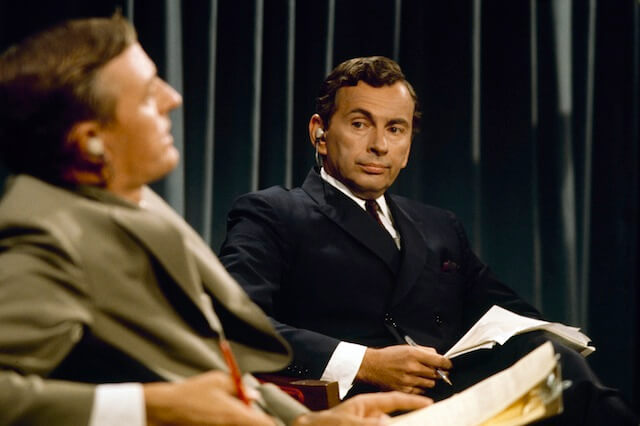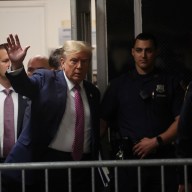‘Best of Enemies’ You can head to YouTube to watch Gore Vidal and William F. Buckley’s infamous smackdowns during the 1968 Democratic National Convention, including the one where the swapped pithy put-downs became so intense that the unflappable Buckley eventually lost it and called Vidal a “queer” on national television. “Best of Enemies” offers not only that, and not only context, but also a sad portrait of two quietly tragic men. Hired by ABC to debate in what was a major television event, they each stood perched, beaming proud smirks, on opposite sides of the socio-political continuum. Ideally they would have had love-hate relations, forever driven by the other to up their game. Instead they went too far and became more like exes who couldn’t even hear the other’s name without fuming. “Best of Enemies” doesn’t dare pick sides, and even enlists two actors of different persuasions — John Lithgow and Kelsey Grammar — to read out their respective letters. It does, however, summon up an era when the political divide was even more chasmic, when tussling was even nastier but where the people waging them on television were funnier and far better-spoken. Given our age of artless shouting and rabid anti-intellectualism, watching Vidal and Buckley calmly spar, with their patrician accents and cutting wits, is like peering into an alien world. In the clips, Buckley is spouting straight-up racism, but he’s doing it so articulately and euphoniously that even a kale addict leftie with a bumper obscured by stickers would find him lovable. RELATED: The doc “Listen to Me Marlon” shows another side to Brando The doc’s centerpiece — the series of debates, which escalated as the protests outside did the same — is giggly stuff. But it’s the postscript that takes it to another level. It argues that this was, for both of them, their cultural and professional zeniths. Both were pitching their extreme points of views to the great unwashed, and, to a not modest point, they both succeeded: Buckley’s hip-ish conservativism lives on in today’s always energized Republican party, while Vidal’s vision of a progressive utopia can be seen in a present that, while nowhere near the Bacchanalia that he hoped, would to a rightie from 1968 seem downright Caligulian. But the architects of the future tend to get chucked aside, and Buckley and Vidal were soon treated as icons of a bygone era. In the final stretch Buckley’s public appearances aren’t as bouncy, held back by a certain anger. Still, he was never as bitter as Vidal. Once every word he wrote infected the culture; he poked America and loved getting poked back. In his latter years, ignored, a dinosaur, he was a miserable crank; there is no more dispiriting film for the aspiring bomb-thrower than the recent doc “Gore Vidal and the United States of Amnesia,” which finds him curdled and sour, uninterested in his legacy — someone whose success left him joyless. “Best of Enemies” reclaims them, showing both of them as tragic figures who went out in a highly quotable blaze of glory.
Directors: Robert Gordon, Morgan Neville
Genre: Documentary
Rating: NR
4 (out of 5) Globes
‘Best of Enemies’ unpacks the Gore Vidal v. William F. Buckley fight

Magnolia Pictures
Follow Matt Prigge on Twitter @mattprigge















